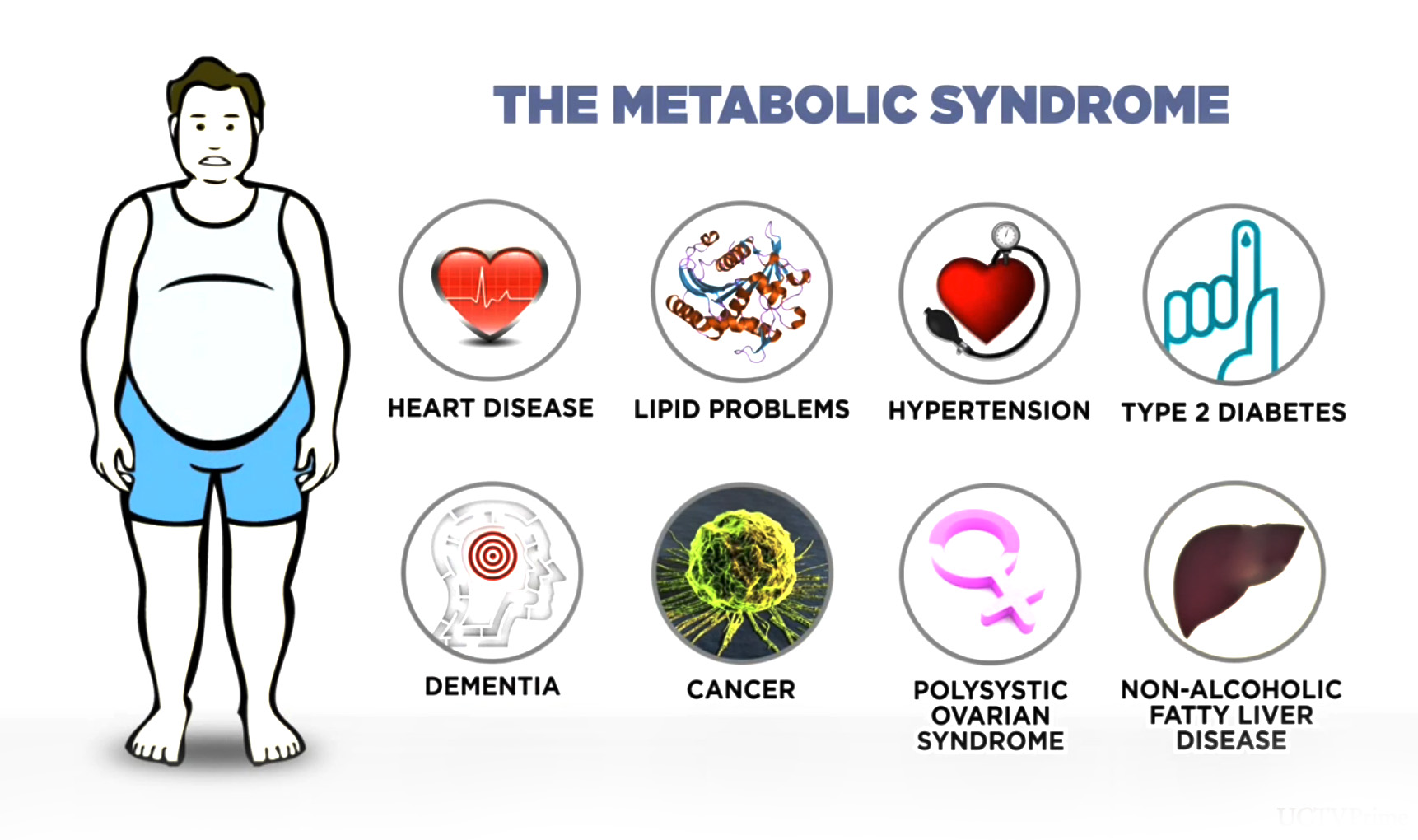MORE ABOUT METABOLIC SYNDROME

For many years, medical issues such as obesity, high blood pressure, glucose intolerance, and high cholesterol were handled individually, with treatments focused solely on medication and weight loss through diet and exercise. Today, however, we realize that these common medical conditions are inter-related and mutually reinforcing, presenting significant health risks and undermining the positive impact of healthy lifestyle choices. In fact, these individual conditions are symptoms of “metabolic syndrome”, a condition affecting more than 34% of Americans today. The good news is that the focus on metabolic syndrome as a single disease has enabled the development of more comprehensive and effective treatments including cutting-edge laparoscopic metabolic surgery.
WHAT IS METABOLIC SYNDROME?
Metabolism is the body’s mechanism for digesting food and processing food energy (calories), involving numerous systems working together seamlessly to maintain a proper chemical and hormonal balance and to ensure that the body gets the energy and nutrients it needs. A metabolic disorder disrupts these chemical processes and prevents the body from gaining access to energy and nutrients. When multiple metabolic disorders are present simultaneously, the result is the condition we now call metabolic syndrome.
Most physicians diagnose metabolic syndrome in individuals with at least three of the following measurements:
- Abdominal obesity (waist circumference of 35+ inches for women, 40+ inches for men)
- Triglycerides greater than 150 milligrams per deciliter of blood (mg/dL)
- HDL (“good”) cholesterol of less than 50 mg/dL for women, 40 mg/dL for men
- Blood pressure greater than 130/85
- Fasting glucose levels of 100+ mg/dL
Unfortunately, the risks to your health increase dramatically when three or more of these problems are present together, for instance, doubling your risk of heart attack. Additional health risk include:
- Vascular diseases: fatty blockages in the arteries can restrict blood circulation
- Coronary heart disease: when arterial blockages prevent blood and oxygen from reaching the heart
- Stroke: when a blocked or burst blood vessel deprives the brain of oxygen and nutrients
- Type 2 diabetes: an abnormal buildup of sugars in the blood due to the body’s inability to produce and/or use insulin properly
HOW METABOLIC SURGERY HELPS
Traditionally, treatment for conditions now associated with metabolic syndrome revolved around medications and healthy lifestyle choices. Unfortunately, metabolic syndrome undermines the body’s ability to respond positively to diet and exercise, making it nearly impossible to lose weight and restore the body’s metabolic systems. Modern laparoscopic metabolic surgery now offers a more effective option for treating metabolic syndrome. Techniques such as the sleeve gastrectomy and gastic bypass alter how the body processes food, enabling rapid, significant weight loss and restoring the hormonal and chemical imbalances at the root of metabolic syndrome. For example, many metabolic surgery patients are told to check their blood sugar before taking their diabetes medications, because they often find that they no longer need them within days, even hours, of their surgery!
Dr. Wiljon Beltre at the Center for Metabolic and Obesity Surgery in Maitland, Florida, is dedicated to offering these advanced surgical techniques as a safe, effective way to put metabolic syndrome itto remission. As a Board Certified, fellowship-trained bariatric surgeon, Dr. Beltre offers a proven, multifaceted approach to metabolic syndrome, including weight loss surgery, a thorough patient education process, and a dedicated, long-term support system. If you have been diagnosed with metabolic syndrome and would like more information on metabolic surgery with Dr. Beltre, we encourage you to attend an informational seminar or contact our office for a free, individual consultation. We look forward to hearing from you!
To find out more about the procedures & treatments performed by Orlando Bariatric Surgeon, Dr. Wiljon Beltre, at The Center for Metabolic and Obesity Surgery Call 321-499-6505 or Click Here to Schedule a Consultation.
Please note: If the weight is regained, the diabetes and other conditions could return.

Are You a Candidate for Weight Loss Surgery?
Take our 60 second assessment and find out if you are a candidate for weight loss surgery


